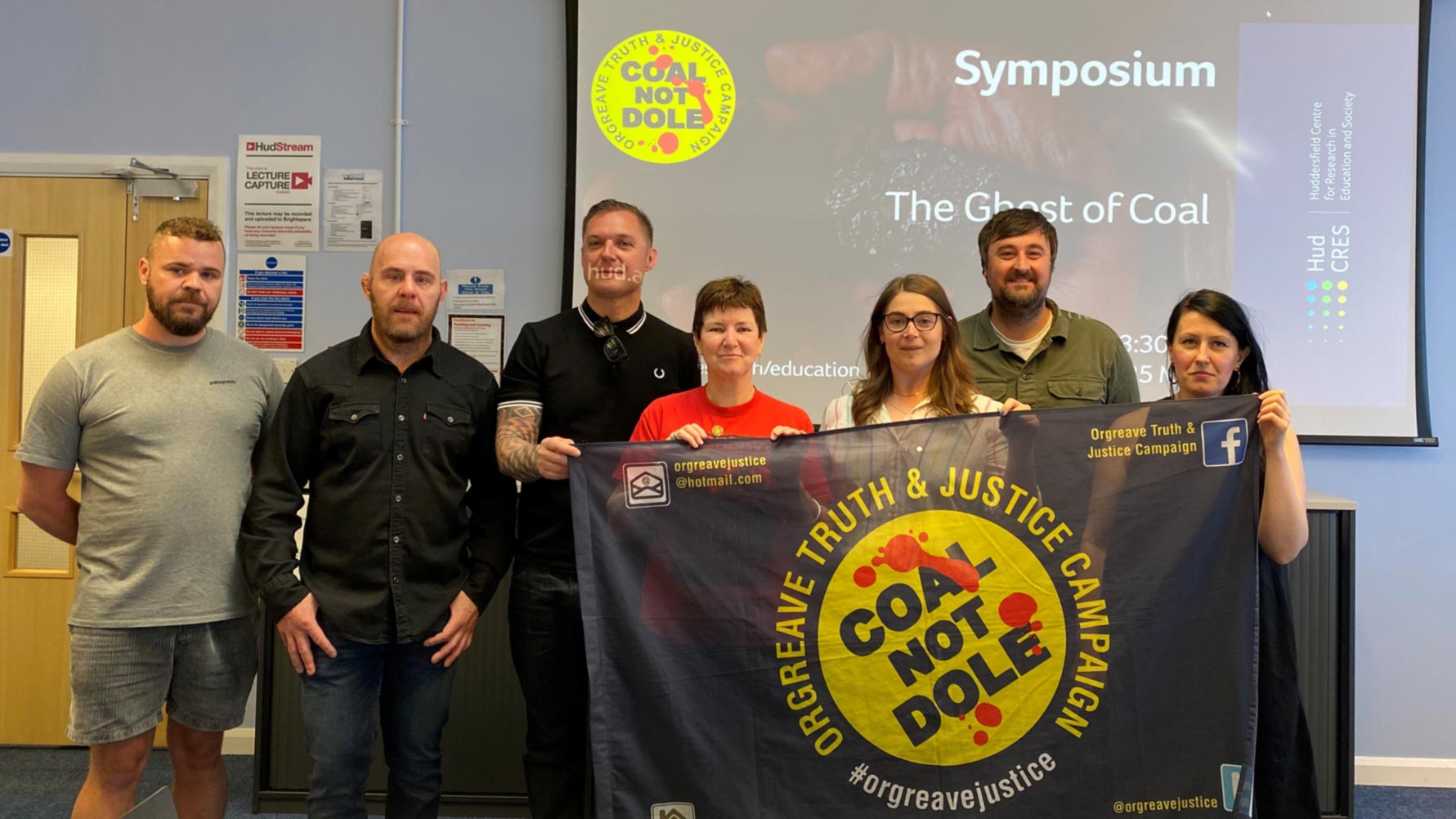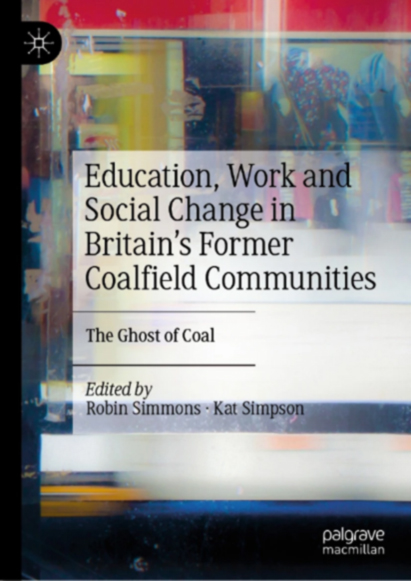Dr Kat Simpson
HudCRES
With the 40th anniversary of Orgreave looming, HudCRES hosted an event Thursday 25th May 2023. Bringing together speakers from the Orgreave Truth and Justice Campaign, Trade Unions, and scholars from different disciplines, the symposium focused on the impacts of deindustrialisation on the social, economic, and affective fabric of the former coalfields.
 left to right, Nicky Stubbs (University of Sheffield), Richard Gater (Wales Institute of Social & Economic Research & Data), Joe Rollin & Kate Flannery (both Orgreave Truth & Justice Campaign), Kat Simpson (HudCRES), Jay Emery (University of Lincoln) and Natalie Thomlinson (University of Reading)
left to right, Nicky Stubbs (University of Sheffield), Richard Gater (Wales Institute of Social & Economic Research & Data), Joe Rollin & Kate Flannery (both Orgreave Truth & Justice Campaign), Kat Simpson (HudCRES), Jay Emery (University of Lincoln) and Natalie Thomlinson (University of Reading) The day kicked off with a keynote from the Orgreave Truth and Justice Campaign. For many, Orgreave represents one of the most serious miscarriages of justice and state-sponsored violence in this country’s history – a miscarriage of justice which has never been adequately addressed. As Joe Rollin from the Orgreave Truth and Justice campaign emotively highlighted in his Keynote
‘Thatcher knew her history and she wanted to make the NUM and miners pay for what they had done…and pave the way to unleash the neoliberal project we are now all suffering’
Joe Rollin, Orgreave Truth and Justice Campaign
Keynote from Joe Rollin, Orgreave Truth & Justice Campaign.
In many ways, former coalmining communities remain socially, economically, and culturally injured by the past. But the history of the former coalfields is not only one of hardship, injustice, and loss but also of bravery and resilience, collectivity and solidarity and, in terms of the future, possibility and hope. So, we too need to know our histories, and those of others, to truly understand the complexities of the social world.
Across the course of the day, speakers captured narratives and experiences about: the shifts in the gendered nature of work in the coalfields; the complexities of belonging and industrial rootedness; memories and experiences of school and post-compulsory education; and changing relations of work and technology.
What was evident though was how the ghost of coal – an industry, a culture, and a way of being and doing – still moves amongst us, amongst the former coalfields and future generations, in intricate ways. There is much yet to be known about the former coalfields – their history, present, and futurity – but this symposium opened up a space for us to start becoming attuned to the shadows of coal – its way of life, its rhythms, ruptures and continuities, and potentialities for the future.
What the audience thought...
The audience were captivated, and when asked what their biggest takeaway from the event was, they noted...
"The idea that place and history matter and shaped who we are and the way we see the world"
"It was a timely reminder of the continuity of the issues under discussion"
"It was great to hear research and connect with those who lived near me as a young person and could understand how I had got into this area of interest myself"
"The implications of a place based education"
Summary
To reckon with the echoes and murmurs of the industrial past is not a call for a return to the past, or to demonise these communities. It is, however, about a knowing that “changes you and refashions the social relations in which you are located. It is about putting life back in where only a vague memory or a bare trace was visible to those who bothered to look” (Gordon, 2008, p. 22).
It is about a conscious knowing of the past as a transformative “lever” for the present and future
You can also find out more information on the speakers and their research in this latest book:
Education, Work and Social Change in Britain’s Former Coalfield Communities - The Ghost of Coal




